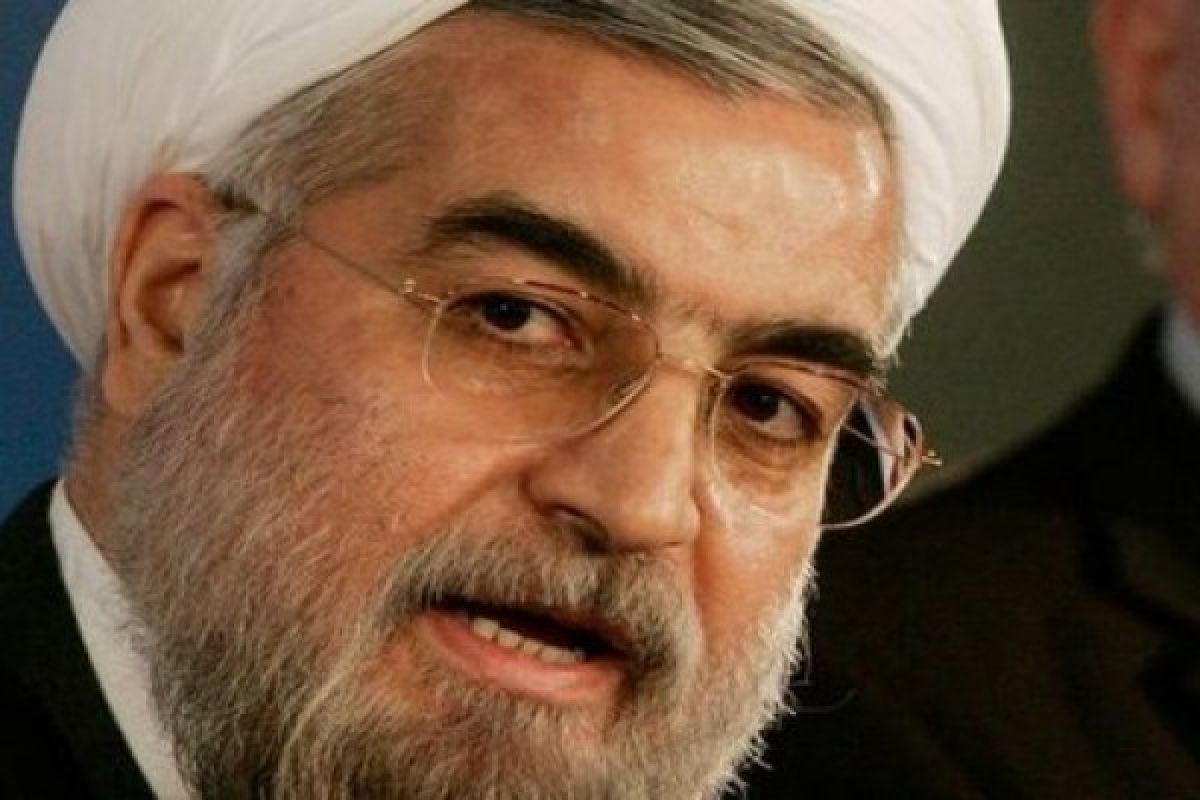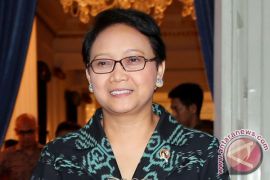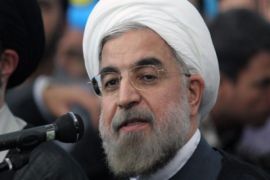"The idea is to engage in more active negotiations."Teheran (ANTARA News/AFP) - Iran`s newly-elected president Hassan Rouhani ruled out any halt to the nuclear activity that has drawn UN sanctions but said he hoped an early deal could be reached to allay the concerns of major powers.
The moderate cleric, who won outright victory in Friday`s presidential election on the hopes of millions for an end to the economic hardship caused by Western sanctions, pledged greater transparency in the long-running talks.
Rouhani, addressing his first press conference since winning the vote, said Monday there would be no change in Iran`s longstanding alliance with Syrian President Bashar al-Assad that has been the source of additional Western concern.
But he said he would seek to thaw relations with the key Gulf Arab backers of the rebels fighting to oust Assad`s regime for more than two years.
Rouhani, who led the nuclear negotiating team under reformist former president Mohammad Khatami from 2003-2005, said there could be no return to the moratorium on uranium enrichment that Iran accepted at the time.
"This period is over," he said.
When Rouhani stepped down, outgoing President Mahmoud Ahmadinejad resumed uranium enrichment, triggering successive UN Security Council ultimatums to suspend it, some of them backed up with sanctions.
Iran has since massively expanded its facilities for the enrichment of uranium, extending the process to 20 percent and raising the fears of regional foe Israel that the 90 percent level required for a warhead is but a step away.
The 64-year-old Rouhani said that the EU and US sanctions against Iran`s oil and banking sectors that have sent the economy into freefall were unjust, but promised talks to try to resolve the underlying issues.
Iran will be "more transparent to show that its activities fall within the framework of international rules", he said.
"The idea is to engage in more active negotiations."
British Foreign Secretary William Hague told parliament he hoped Tehran would now "engage seriously".
"The government hopes that following Dr Rouhani`s election, the Iranian government will take up the opportunity of a new relationship with the international community by making every effort to reach a negotiated settlement on the nuclear issue," he said.
"If Iran is ready to make that choice, we are ready to respond in good faith." But Tehran should not doubt Britain`s resolve to prevent nuclear proliferation in the Middle East, he added.
Rouhani has repeatedly promised to restore diplomatic relations with the United States, broken off more than three decades ago after the storming of the US embassy in Tehran by Islamist students.
He has also expressed readiness for bilateral talks with Washington to allay its concerns that Tehran`s nuclear programme is cover for a drive for a weapons capability.
But the US should not interfere in Iran`s internal affairs, should recognise its rights, including nuclear rights, "...and stop its unilateral policies and pressure", he added.
US President Barack Obama and Russian President Vladimir Putin both expressed "cautious optimism" that Rowhani`s election could help promote progress in the nuclear talks.
They were speaking to reporters after talks Monday on the sidelines of the G8 summit in Northern Ireland.
Putin said he hoped that the vote would reveal "new opportunities to solve the Iranian nuclear problem".
On a visit to Iran`s western neighbour Iraq on Monday, the chief negotiator of the major powers, EU foreign policy chief Catherine Ashton, said she would take Rowhani up on his promise of more constructive engagement.
"I will continue to do my work to urge Iran to work closely with me.., to build confidence in the nature of their nuclear programme," she said.
Rouhani said he would seek to mend difficult relations between Shiite Iran and Sunni-dominated Gulf Arab states, which have been further strained by the two-year conflict in Syria.
"The priority of my government is to strengthen relations with neighbours... the countries of the Persian Gulf and Arab ones that are of strategic importance and our brothers," he said.
"Saudi Arabia is a brother and neighbour... with which we have historic, cultural and geographical relations."
But he said there would be no let-up in Iran`s support for its longstanding ally Assad to appease Gulf states that back the Syrian rebels.
Rouhani won Friday`s election with more than 50 percent of the vote against a divided field of hardline conservatives.
He told supporters on Monday that he would do all in his power to bring about "the change" they desired after eight years of conservative domination under Ahmadinejad.
(Uu.H-RN)
(Uu.SYS/C/H-RN/C/H-RN) 18-06-2013 15:29:10
Editor: Priyambodo RH
Copyright © ANTARA 2013









